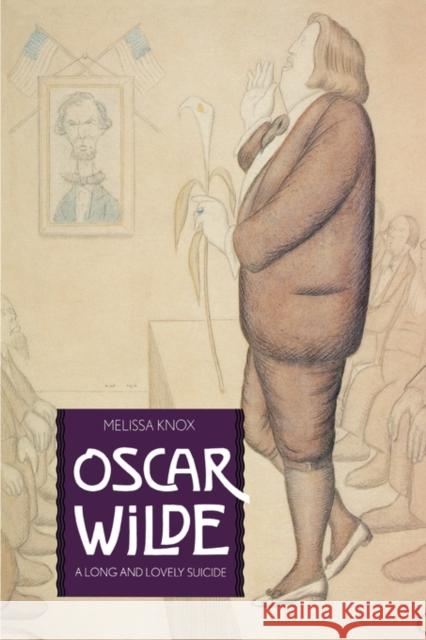Oscar Wilde: A Long and Lovely Suicide » książka
Oscar Wilde: A Long and Lovely Suicide
ISBN-13: 9780300068733 / Angielski / Miękka / 1996 / 212 str.
"I was a problem for which there was no solution."--Oscar Wilde, 1897
During his lifetime Oscar Wilde was praised as a brilliant playwright, novelist, and conversationalist and stigmatized as a dangerous seducer of youth. Ironically, he is perhaps best remembered now for the bravery he exhibited in 1895 during his trial in England for homosexual offenses. In the first full-length psychoanalytic biography of Wilde, Melissa Knox explores the link between little-known childhood events and figures in his life and his psychological development to explain both Wilde's creativity and his self-destructive heroism.
Drawing on new information as well as on recent biographies and studies, Knox sketches the important characters in Wilde's formative years: an adoring and demanding mother, a father whose scandalous life degraded the family, and a beloved sister who died when Oscar was eleven. She describes Wilde's first daring efforts as a young man to challenge British mores; his lifelong battle with his fears of the syphilis he reportedly contracted at Oxford; his marriage and two children; his tempestuous and flamboyant love affair with Lord Alfred Douglas, whose father, the marquess of Queensberry, accused Wilde of homosexual practices; Wilde's libel suit against the marquess, subsequent trial, and two-year imprisonment; and his last years in exile, disgrace, and ill health. Uncovering the unconscious motivations beneath Wilde's surface bravado, Knox is able to explain his often puzzling actions. She also offers new interpretations of some of his works, from Salome, which she calls Wilde's most autobiographical work, to The Importance of Being Earnest, in which she sees Wilde artistically embracing his inability to resolve conflicts, to De Profundis, his attempt to salvage himself as a man and an artist.











